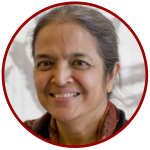30 Years of the International Conference on Population and Development: Advancing Sexual and Reproductive Health and Rights in an Era of Challenging Political Contexts
Event description
The USC Institute on Inequalities in Global Health, in partnership with Sexual and Reproductive Health Matters (SRHM), invites you to join us for “30 Years of the International Conference on Population and Development: Advancing Sexual and Reproductive Health and Rights in an Era of Challenging Political Contexts” on April 17th, 9:00 am PDT/6:00 pm CET.
The 1994 International Conference on Population and Development (ICPD) held in Cairo, Egypt is widely recognized to have transformed the global framework for population and development. Cairo defined a new agenda that moved population concerns away from demographic targets towards rights-affirming policies and programs, placing dignity and rights at the heart of sustainable development. The Cairo agenda paved the way towards the recognition that sustainable development requires prioritizing sexual and reproductive rights and addressing inequalities. The ICPD set the standard for people-centered development, and now, 30 years later, remains the global touchstone for sexual and reproductive rights, even as we are seeing massive regressions across all aspects of sexual and reproductive health and rights. In this virtual event, an amazing group of panelists will reflect on the history and the future of health and development in the current political moment.
The dialogue will be moderated by IIGH Director Sofia Gruskin and SRHM Board of Trustees Co-Chair Sapna Desai.
The webinar is hosted by the USC Institute on Inequalities in Global Health in partnership with Sexual and Reproductive Health Matters.
Please join us on Wednesday, April 17th, at 9:00 am PDT/6:00 pm CET.
Speakers:

Bouchra Assarag is a medical doctor, and an SRHR activist from Morocco. She is the President of the association Together for Sexual and Reproductive Health Rights (Enssemble pour la Santé de la Reproduction et Droits (EDSSR) and Deputy Director of Studies in the National School of Public Health in Morocco. She is the coordinator of the Sexual and Reproductive Health Network of North and West Africa and she is the coordinator of Francophone African Hub of Sexual Reproductive Health Matters (SRHM) Journal. She holds a PhD from the University Libre of Brussels (ULB), a master's degree in public health from the National Institute of Health Administration, National School of Public Health (NSPH) and a university degree in STI / HIV from the University of Rabat. She worked as a doctor in a rural district for 6 years before joining the NPHS in 2008. Presently she coordinates several regional and national studies in north Africa and sub-Saharan countries and in Morocco in collaboration with several partners like WHO, UNFPA, UNICEF and IOM and the Ministry of Health in Morocco and other national partners. She also leads several academic courses and training programs on SRHR, for example integrating SRHR issues into primary health care training and training on migration and health or developing training toolkits for health care providers on violence against women and children, human rights and gender. Her research interests are SRHR and access to quality care. She has several publications in public health journals.

Gita Sen is Honorary Distinguished Professor of the Ramalingaswami Centre on Equity and Social Determinants of Health at the Public Health Foundation of India. She is an Executive Committee member of the feminist network, DAWN (Development Alternatives with Women for a New Era). She holds a PhD in Economics from Stanford University. She has worked as an advocate, activist and researcher over many decades to promote the ICPD paradigm shift towards sexual and reproductive health and rights and gender equality. Her books include, among others, Women’s Empowerment and Demographic Processes – Moving Beyond Cairo (Oxford University Press/IUSSP, 2000); and Population Policies Reconsidered: Health, Empowerment and Rights (Harvard Centre for Population and Development Studies, 1994). In India, she has been a member of the Governing Board of the National Health Systems Resource Centre, the Mission Steering Group for the National Rural Health Mission, and the High-Level Expert Group on Universal Health Care set up by India’s Planning Commission. She received the UNFPA award in honour of Dr. Fred T. Sai at the Nairobi summit to mark ICPD+25 in 2019. She has also received the Volvo Environment Prize for her work on women, population and development, the Dan David Prize for her work on gender equality, and Honorary Doctorates from the University of East Anglia, the Karolinska Institute (Stockholm), the Open University (UK), the University of Sussex, and the University of Edinburgh.

Montasser Kamal re-joined the International Development Research Centre (IDRC) in 2016, having previously worked at the Centre from 2000-2. He has more than 35 years of experience in international development, including in the civil society, government and philanthropic sectors. He led IDRC’s Innovating for Maternal and Child Health in Africa (IMCHA) initiative and the Centre’s Health Research Partnerships. Montasser was formerly the deputy director for Global Health Policy and Research at Global Affairs Canada. He also worked at the former Canadian International Development Agency, as team leader of Health Specialists, and he also served as a reproductive health policy advisor and manager of Multilateral Health Institutions and Partnerships. Between 2007-14, at the Middle East and North Africa Regional Office of the Ford Foundation, he supported research, policy advocacy and programming related to sexual and reproductive health and rights, as well as HIV/AIDS. Montasser is an MD with Diploma and holds MSc and PhD degrees in medicine, international development and medical anthropology from Egypt, the United Kingdom and Canada.

Uluk Batyrgaliev is an international trainer-consultant on SRHR and a media influencer in Kyrgyzstan. He is a Health Officer at ECOM — Eurasian Coalition for Health, Rights, Gender and Sexual Diversity. He is Vice-Chair of the IPPF's Board of Trustees, Pleasure Project Fellow, and CCM (GF) member in Kyrgyzstan. Additionally, he is a co-founder of the New Generation of Human Rights Defenders of Kyrgyzstan. He is a part of the core writing group of the High Impact Practice Strategic Planning Guide for a Human Rights Based Approach (HRBA) to Family Planning led by UNFPA HQ. Uluk has 11 years of experience in SRHR, SOGI, FP, CSE, and HIV, as well as over 6 years of experience in advocacy, human rights, developing policy briefs, conducting sociological and human rights research, developing training and information materials on SRHR and human rights.
Co-Moderators:

Sapna Desai is a public health specialist based in New Delhi, India whose work has spanned grassroots implementation and organizing, evidence generation and policy action. She is Co-Chair of the Board of Sexual and Reproductive Health Matters and a Senior Fellow at the Population Council Institute, India. Her research and practice focuses on sexual and reproductive health and rights; women’s health over the life course; women's groups and their role in improving health and social protection; and health systems. Her current research includes mixed-methods research on the causes and consequences of unindicated hysterectomy in India, primary health care and universal health coverage in two Indian states and the pathways between women’s economic and health security for women workers in the informal economy. Previously, Sapna worked with the Population Council, where she co-led the global Evidence Consortium on Women’s Groups, and with the Self-Employed Women’s Association, India’s largest organization of women workers, as national health lead. She has been affiliated with SRHM for over 13 years, as an associate editor, editorial advisory board member and currently a Trustee. Dr. Desai is a Commissioner on the Lancet Commission on Reimagining India’s Health System, a previous member of the Lancet COVID-19 India Task Force and Adjunct Faculty, BRAC JPG School of Public Health. Sapna holds a PhD in Epidemiology and Population Health from the London School of Hygiene and Tropical Medicine and a master’s degree in Population and International Health from the Harvard School of Public Health.

Sofia Gruskin directs the USC Institute on Inequalities in Global Health (IIGH). She is a Distinguished Professor of Population and Public Health Sciences and Law, Professor of Preventive Medicine and Chief of the Disease Prevention, Policy and Global Health Division at the Keck School of Medicine, and Professor of Law and Preventive Medicine at the Gould School of Law. Sofia currently sits on numerous international boards and committees including the PEPFAR Scientific Advisory Board, the Lancet Commission on Gender and Global Health, the IUSSP Steering Committee to Strengthen Civil Registration and Vital Statistics Systems, and the Lancet Commission on Health and Human Rights. Sofia has published extensively, including several books, training manuals and edited journal volumes, and more than 200 articles and chapters covering a wide range of topics.
Tickets for good, not greed Humanitix dedicates 100% of profits from booking fees to charity


